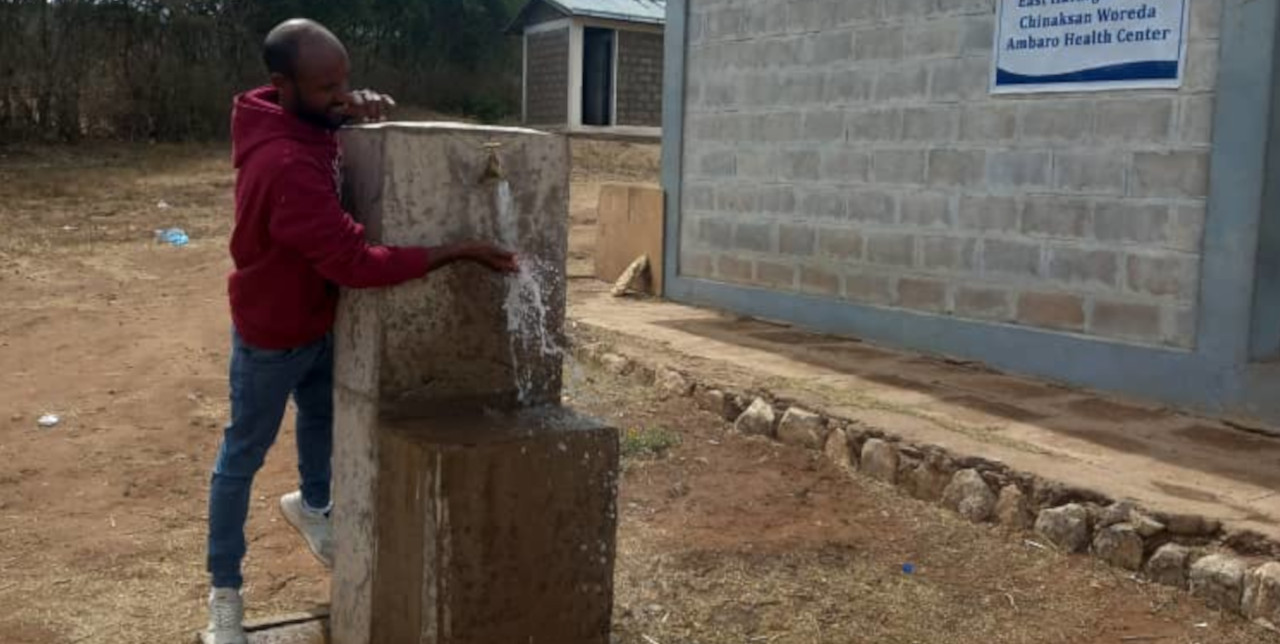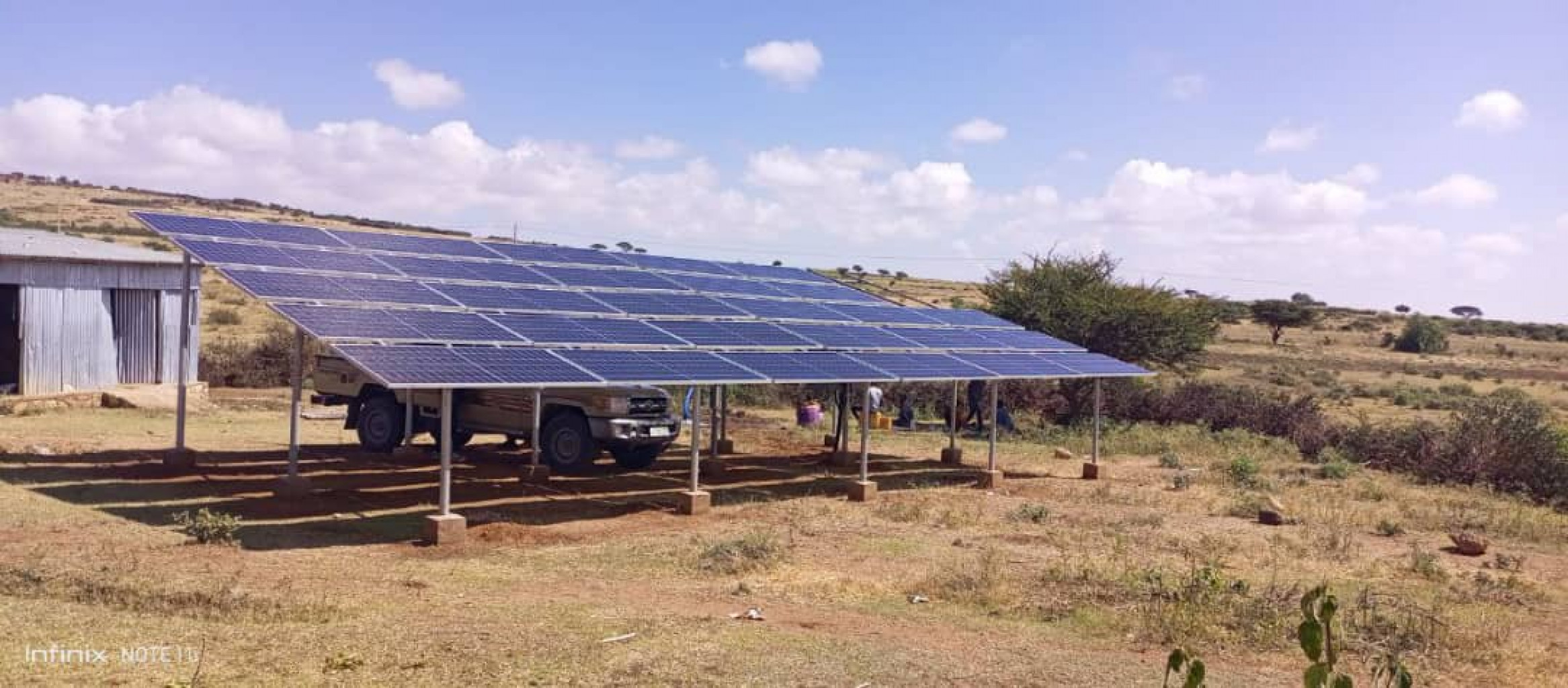29-12-2022 | di COOPI
Ethiopia. 91,000 litres of water secured with the European Union in Ambaro
In the town of Ambaro, in the Oromia region of Ethiopia, there is the only health centre operating in the area. It is the only facility that provides services to the communities in the three surrounding districts. However, for three years, the health facility has lacked a safe and constant water source to guarantee the full range of services required. To meet the needs, the centre purchased water in barrels on a daily basis, but the quantity was never sufficient, the cost was very high and above all, the water purchased was neither safe nor clean, as it came from an unprotected well.
To solve the water shortage in the area, COOPI - Cooperazione Internazionale staff carried out technical assessments and detailed investigations at the health facility and the water system in the town of Ambaro, as well as a pumping test at the community's deep well. Thanks to the project "Emergency response for access to quality health services for the population affected by the humanitarian crisis in the regions of Oromia and Somalia, Ethiopia", financed by the European Union (Humanitarian Aid Department - ECHO), our organisation was able to improve the existing water system by implementing a solar-powered one. Today, the system is able to produce 91,000 litres of water per day, an amount far exceeding the needs of the health facility and the community.
Now the health facility and the communities of Ambaro have access to a safe, clean and adequate source of water to provide comprehensive health services to the surrounding communities. This contributes to the main objective achieved with the support of the European Union: to reduce the mortality of the populations affected by the inter-communal conflicts and humanitarian crises in the Oromia and Somali regions of Ethiopia. In addition, COOPI supported several health centres, ensuring adequate care for the needs of displaced populations and vaccinations against COVID-19.
Ethiopia is the second most populated country in Sub-Saharan Africa and the rapid population growth puts a strain on available natural resources. The economy is mainly based on pastoralism and agriculture, but the frequent droughts that affect the country expose it to frequent crises, food insecurity and strong migration flows. Since 1995, COOPI has been facilitating access to drinking water and promoting efficient irrigation systems, improving sanitation in homes, schools and health centres and supporting the spread of good hygiene practices.




 Ethiopia
Ethiopia
